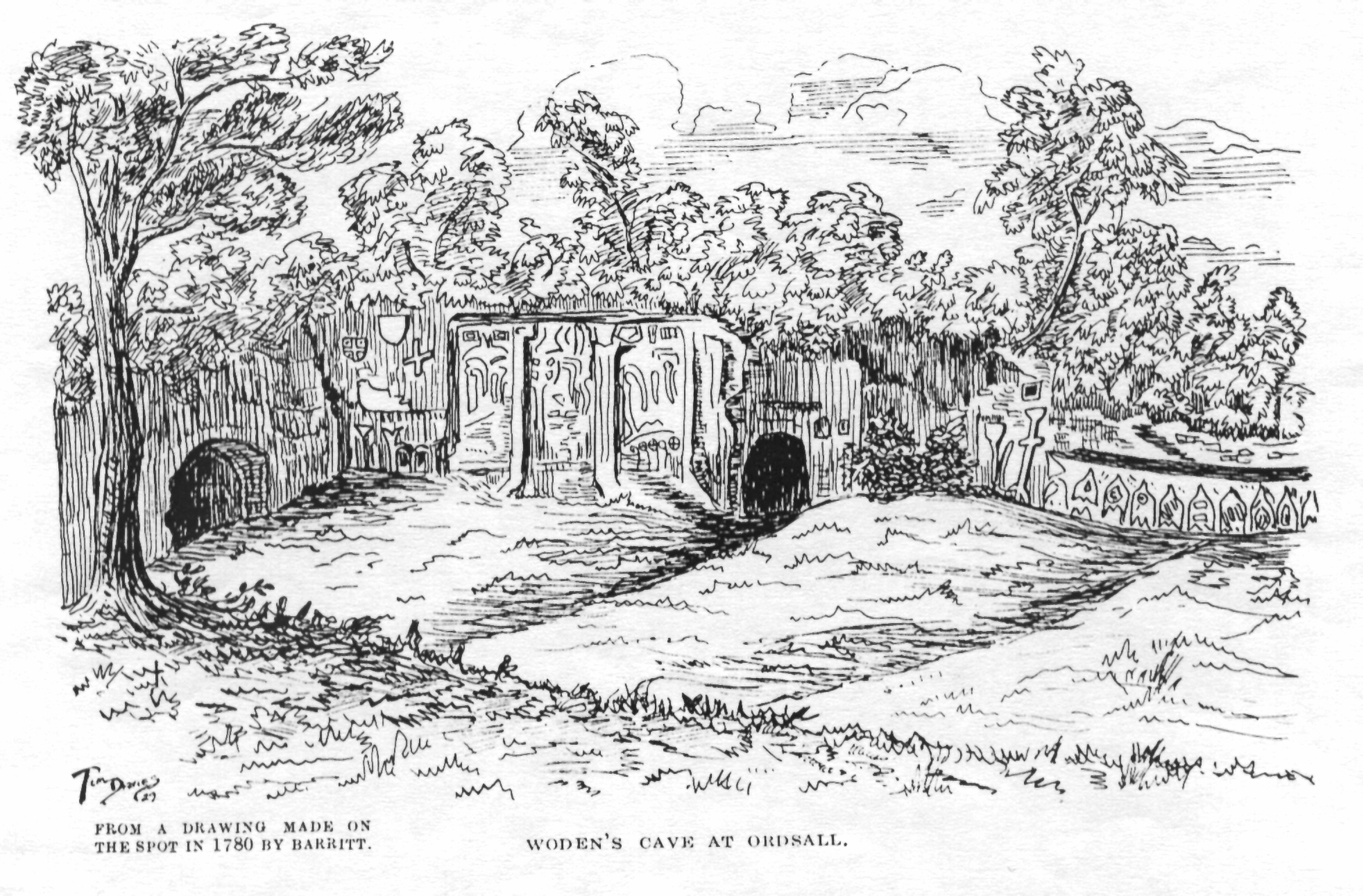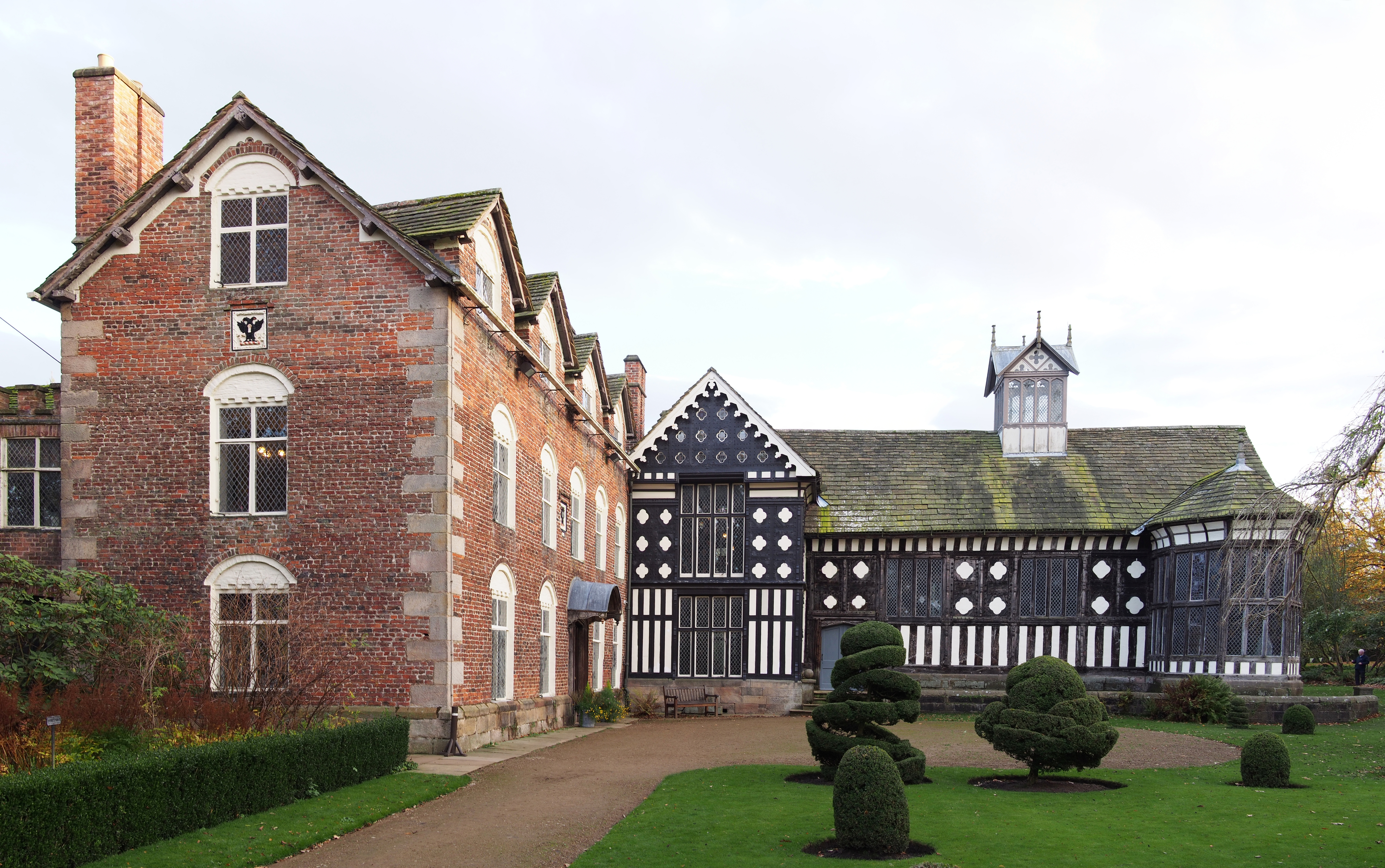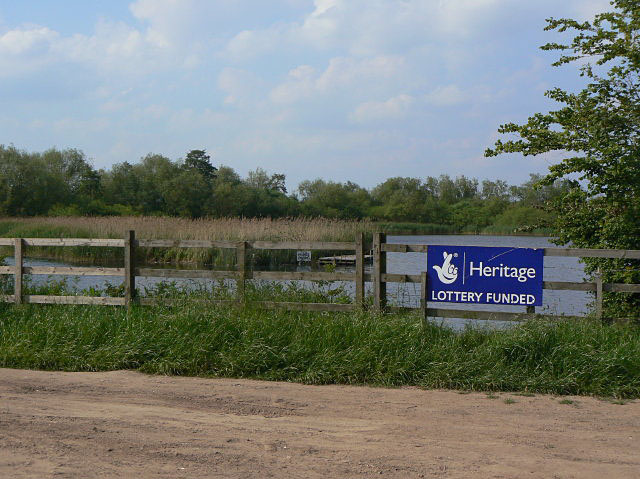|
Ordsall Hall
Ordsall Hall is a large former manor house in the historic parish of Ordsall, Lancashire, England, now part of the City of Salford, in Greater Manchester. It dates back more than 750 years, although the oldest surviving parts of the present hall were built in the 15th century. The most important period of Ordsall Hall's life was as the family seat of the Radclyffe family, who lived in the house for more than 300 years. The hall was the setting for William Harrison Ainsworth's 1842 novel ''Guy Fawkes'', written around the plausible although unsubstantiated local story that the Gunpowder Plot of 1605 was planned in the house. Since its sale by the Radclyffes in 1662 the hall has been put to many uses: a working men's club, a school for clergy, and a radio station among them. The house was bought by the old Salford Council in 1959 and opened to the public in 1972, as a period house and local history museum. The hall is a Grade I listed building, and entrance is free. History Ordsa ... [...More Info...] [...Related Items...] OR: [Wikipedia] [Google] [Baidu] |
Ordsall, Greater Manchester
Ordsall is an inner city suburb of Salford, Greater Manchester, England. The population at the 2011 census was 14,194. It lies chiefly to the south of the A57 road, close to the River Irwell, the main boundary with the city of Manchester, Salford Quays and Manchester Ship Canal, which divides it from Stretford. Historically part of Lancashire, Ordsall was the birthplace of the bush roller chain and is home to Ordsall Hall. History The name Ordsall has Old English origins being the personal name ''Ord'' and the word ''halh'', meaning a corner or nook, which has become the modern dialect word "haugh". This, indeed, describes the position of the manor of Ordsall, for its boundary on the south side is a large bend in the River Irwell, which became the site of the docks for the Manchester Ship Canal. Ordsall first appears in records in 1177 when Ordeshala paid two marks towards an aid, a feudal due or tax. Antiquarian and Geologist, Samuel Hibbert-Ware gave a different etymolog ... [...More Info...] [...Related Items...] OR: [Wikipedia] [Google] [Baidu] |
Rufford Old Hall
Rufford Old Hall is a National Trust property in Rufford, Lancashire, England. Built in about 1530 for Sir Robert Hesketh, only the Great Hall survives from the original structure. A brick-built wing in the Jacobean style was added in 1661, at right angles to the Great Hall, and a third wing was added in the 1820s. Rufford Old Hall is designated by English Heritage as a Grade I listed building, The hall's cottage, coach house and stables, about to the east, are designated Grade II. History Until 1936, Rufford Old Hall was in the continuous ownership of the Hesketh family who were lords of the manor of Rufford from the 15th century. The Heskeths moved to Rufford New Hall in 1798. In 1846 Sir Thomas George Hesketh, 5th Baronet married Lady Anna Maria Arabella Fermor, sister and heiress of George Richard William Fermor, 5th and last Earl of Pomfret. In 1936 Rufford Old Hall, with its collection of arms and armour and 17th-century oak furniture, was donated to the National Tr ... [...More Info...] [...Related Items...] OR: [Wikipedia] [Google] [Baidu] |
Heritage Lottery Fund
The National Lottery Heritage Fund, formerly the Heritage Lottery Fund (HLF), distributes a share of National Lottery funding, supporting a wide range of heritage projects across the United Kingdom. History The fund's predecessor bodies were the National Land Fund, established in 1946, and the National Heritage Memorial Fund, established in 1980. The current body was established as the "Heritage Lottery Fund" in 1994. It was re-branded as the National Lottery Heritage Fund in January 2019. Activities The fund's income comes from the National Lottery which is managed by Camelot Group. Its objectives are "to conserve the UK's diverse heritage, to encourage people to be involved in heritage and to widen access and learning". As of 2019, it had awarded £7.9 billion to 43,000 projects. In 2006, the National Lottery Heritage Fund launched the Parks for People program with the aim to revitalize historic parks and cemeteries. From 2006 to 2021, the Fund had granted £254million ... [...More Info...] [...Related Items...] OR: [Wikipedia] [Google] [Baidu] |
Earl Egerton
Earl () is a rank of the nobility in the United Kingdom. The title originates in the Old English word ''eorl'', meaning "a man of noble birth or rank". The word is cognate with the Scandinavian form ''jarl'', and meant "chieftain", particularly a chieftain set to rule a territory in a king's stead. After the Norman Conquest, it became the equivalent of the continental count (in England in the earlier period, it was more akin to a duke; in Scotland, it assimilated the concept of mormaer). Alternative names for the rank equivalent to "earl" or "count" in the nobility structure are used in other countries, such as the ''hakushaku'' (伯爵) of the post-restoration Japanese Imperial era. In modern Britain, an earl is a member of the peerage, ranking below a marquess and above a viscount. A feminine form of ''earl'' never developed; instead, ''countess'' is used. Etymology The term ''earl'' has been compared to the name of the Heruli, and to runic ''erilaz''. Proto-Norse ''er ... [...More Info...] [...Related Items...] OR: [Wikipedia] [Google] [Baidu] |
Skittles (sport)
Skittles is a historical lawn game and target sport of European origin, from which the modern sport of nine-pin bowling is descended. In regions of the United Kingdom and Ireland the game remains as a popular indoor pub game. Playing Skittles is usually played indoors on a bowling alley, with one or more heavy balls, usually spherical but sometimes oblate, and several (most commonly nine) , or small bowling pins. The general object of the game is to use the ball(s) to knock over the skittles, either specific ones or all of them, depending upon game variant. Exact rules vary widely on a regional basis. Rules variations (Note: See Glossary below for explanation of named pins) Front pin first In this variant of the game, pins are counted only if the front pin is knocked over first. If the front pin is missed, any pins that are knocked over are not reset. In Devon Summer League, this rule is played frequently. In Bristol, this is the form of the game played and "all in" skittl ... [...More Info...] [...Related Items...] OR: [Wikipedia] [Google] [Baidu] |
Working Men's Club
Working men's clubs are British private social clubs first created in the 19th century in industrial areas, particularly the North of England, Midlands, Scotland and South Wales Valleys, to provide recreation and education for working class men and their families. History The first working men's club opened in 1857 in Reddish. There are three working men's clubs in Reddish: this, North Reddish Working Men's Club and the architecturally significant Houldsworth Working Men's Club. Wisbech Working Men's Club & Institute was formed in 1864 in Wisbech, Isle of Ely, and moved to its present site in 1867. It was once the most financially successful of all the clubs in England, with over 1,300 members in 1904. Despite the original educational ambitions, most working men's clubs are now mainly recreational. Typically, a club would have a room, often referred to (especially in Northern England) as a vault, with a bar for the sale and consumption of alcohol, snooker, pool or bar billi ... [...More Info...] [...Related Items...] OR: [Wikipedia] [Google] [Baidu] |
Tatton, Cheshire
Tatton is a civil parish in the Borough of Cheshire East and ceremonial county of Cheshire in England. It lies to the north of Knutsford and mostly covers Tatton Park. At the 2001 census, it had a population of 35. The parish does not have a parish council or parish meeting. See also * Listed buildings in Tatton, Cheshire * Tatton Park * Tatton Park Gardens * Tatton Park Flower Show RHS Flower Show Tatton Park held at Tatton Park, near Knutsford, Cheshire, first began in 1999 by the Royal Horticultural Society. The show houses the RHS National Flower Bed Competition, Young Designer of the Year Award and a wide range of ins ... References Civil parishes in Cheshire {{Cheshire-geo-stub ... [...More Info...] [...Related Items...] OR: [Wikipedia] [Google] [Baidu] |
Shenstone, Staffordshire
Shenstone is a village and civil parish in The Lichfield District, Staffordshire, England, located between Lichfield and Sutton Coldfield. The parish also contains the village of Stonnall. Transport Shenstone is very well served with buses to Lichfield, Birmingham, Sutton Coldfield and Aldridge. The railway station in the village is served by the Cross-City Line and offers connections to the West Coast Main Line at and the Chase Line at Aston for services to Wolverhampton, Walsall, Cannock, Rugeley and for the West Coast Main Line. There are also services to Redditch and Bromsgrove as well as Birmingham New Street. The village also is the only settlement in Lichfield District to have an active railway station after the two stations in Lichfield. The village is also situated next to the M6 Toll which offers road connections to Stafford, Wolverhampton, South Staffordshire, Brownhills, Cannock, Tamworth and Coleshill. It also offers connections to the M6 Motorway and M42 ... [...More Info...] [...Related Items...] OR: [Wikipedia] [Google] [Baidu] |
Cross Street Chapel
Cross Street Chapel is a Unitarian church in central Manchester, England. It is a member of the General Assembly of Unitarian and Free Christian Churches, the umbrella organisation for British Unitarians. Its present minister is Cody Coyne. History The Act of Uniformity 1662 imposed state control on religion by regulating the style of worship in the Church of England. However, many clergy rejected the restrictions, and of the 2000 ministers who were ejected from the established church, Henry Newcome established his own congregation that same year. The "Dissenters' Meeting House" was opened in 1694 and holds a special place in the growth of nonconformism within the city. In 2012, the chapel became the first place of worship to be granted a civil partnership licence when the law changed in England. During the construction of Manchester Metrolink's second city crossing in the City Zone, 270 bodies from what used to be the chapel's graveyard had to be exhumed and reburied. The ... [...More Info...] [...Related Items...] OR: [Wikipedia] [Google] [Baidu] |
Northwich
{{Infobox UK place , static_image_name = Northwich - Town Bridge.jpg , static_image_caption = Town Bridge, the River Weaver and the spire of Holy Trinity Church , official_name = Northwich , country = England , region = North West England , population = 50,531 , population_ref = (2021){{NOMIS2021 , id=E35001305 Overview Profile: Northwich Town Council"; downloaded fro.gov.uk/find_out_more/datasets_and_statistics/statistics/census_2011/population_profiles Cheshire West and Chester: Population Profiles 16 May 2019 , os_grid_reference = SJ651733 , coordinates = {{coord, 53.259, -2.518, display=inline,title , post_town = NORTHWICH , postcode_area = CW , postcode_district = CW8,CW9 , dial_code = 01606 , constituency_westminster = Weaver Vale , constituency_westminster1 = Tatton , civil_pa ... [...More Info...] [...Related Items...] OR: [Wikipedia] [Google] [Baidu] |
Hearth Tax
A hearth tax was a property tax in certain countries during the medieval and early modern period, levied on each hearth, thus by proxy on wealth. It was calculated based on the number of hearths, or fireplaces, within a municipal area and is considered among the first types of progressive tax. Hearth tax was levied in the Byzantine Empire from the 9th century, France and England from the 14th century, and finally in Scotland and Ireland in the 17th century. History Byzantine Empire In the Byzantine Empire a tax on hearths, known as ''kapnikon'', was first explicitly mentioned for the reign of Nicephorus I (802–811), although its context implies that it was already then old and established and perhaps it should be taken back to the 7th century AD. Kapnikon was a tax levied on households without exceptions for the poor.Haldon, John F. (1997) ''Byzantium in the Seventh Century: the Transformation of a Culture''. Cambridge University Press. France In the 1340s especially, the Kin ... [...More Info...] [...Related Items...] OR: [Wikipedia] [Google] [Baidu] |
Ordsall Hall, Great Hall, High End, 2009
{{Geodis ...
Ordsall may refer to more than one place in England: *Ordsall, Greater Manchester **Ordsall (ward), an electoral ward of the Salford City Council **Ordsall Hall *Ordsall, Nottinghamshire **Ordsall Hall School Ordsall Hall Comprehensive School was a comprehensive school situated on ''Ordsall Road'' in the market town of East Retford in the district of Bassetlaw, Nottinghamshire. History In 2003 it merged with the King Edward VI Grammar School to be ... [...More Info...] [...Related Items...] OR: [Wikipedia] [Google] [Baidu] |








